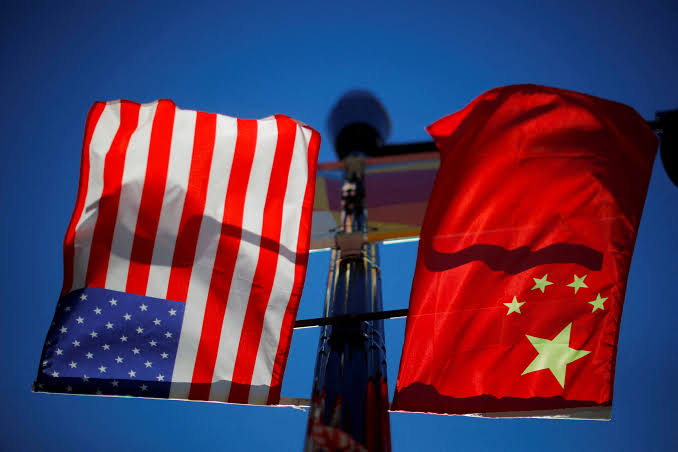
BREAKING: Unconfirmed Reports Claim Attempted Cyber Intrusion on U.S. Systems Linked to China’s AI Capabilities
In a rapidly developing story that has sparked conversations across global cybersecurity circles, unconfirmed reports circulating online suggest that China may have attempted to breach American digital infrastructure using sophisticated artificial intelligence tools. While no official government agency in the United States has verified these claims, the discussions have intensified public debate about the evolving nature of AI-driven cyber warfare and the rising tensions between major world powers in the digital space.
According to early online chatter and commentary from several independent cybersecurity analysts, the alleged intrusion involved the use of next-generation AI systems capable of scanning, adapting, and infiltrating network defenses at unprecedented speed. These speculative reports claim that the AI was designed to autonomously probe vulnerabilities, mimic authorized user activity, and bypass conventional security protocols without immediate detection.
However, cybersecurity specialists caution the public that there is currently no concrete evidence confirming that such an attack occurred, nor that it originated from China. They emphasize that misinformation surrounding international cyber conflicts tends to spread quickly, especially during periods of heightened geopolitical tension.
Despite the lack of official confirmation, the story has gained traction due to ongoing concerns about China’s rapid advancement in artificial intelligence research. In recent years, China has invested heavily in building autonomous systems capable of handling complex tasks—from advanced robotics to predictive analytics and cyber defense. This competitive growth has fueled fears within Western nations that AI could also be weaponized for offensive digital operations.
U.S. security agencies have repeatedly warned about the potential risks associated with AI-powered cyber tools. Modern AI systems can perform tasks that previously required large, coordinated hacking teams, allowing automated algorithms to scan billions of lines of code, decipher encrypted signals, or launch targeted phishing campaigns. These capabilities make AI both a powerful asset and a potential threat in the hands of malicious actors.

If the reports are eventually confirmed, experts say it would mark one of the most sophisticated attempts at cyber intrusion in modern digital history. AI-driven attacks differ from traditional hacks because they are adaptive; they learn from each failed attempt, rewrite their strategies autonomously, and evolve continuously. This ability to self-modify makes defending against them far more complex.
Still, American cybersecurity officials have consistently maintained that the U.S. government and private sector networks are protected by multilayered defense systems designed to withstand attacks from both state and non-state actors. These include advanced firewalls, intrusion detection algorithms, behavioral analytics, and constant real-time monitoring. Over the past decade, the U.S. has also invested in its own AI-powered cybersecurity programs intended to counteract and neutralize foreign digital threats.
Several analysts believe the viral nature of the story reflects growing public anxiety over AI, rather than evidence of an actual breach. With artificial intelligence becoming increasingly integrated into global infrastructure—from banking to military systems—concerns about AI-enabled attacks have surged. High-profile cyber incidents in the past have shown how fast misinformation can spread, often long before official authorities release accurate statements.
Experts also note that attributing cyberattacks to specific countries is a highly complex process. Hackers often plant misleading digital fingerprints or route their operations through multiple nations to disguise their true locations. As a result, premature accusations can escalate political tensions unnecessarily.
For now, both cybersecurity professionals and global governing bodies urge caution. They advise the public and media outlets to wait for verified information from credible sources such as the U.S. Cybersecurity and Infrastructure Security Agency (CISA), the Department of Defense, or major cyber intelligence firms.
What is clear, however, is that the mere possibility of such an event underscores the growing importance of AI governance, international cyber diplomacy, and stronger global frameworks to prevent the misuse of artificial intelligence. As countries race to harness the power of AI, the world stands at a crossroads where innovation must be balanced with responsibility and security.
The situation remains fluid, and updates are expected as official investigations continue—or as authorities address the growing online speculation directly. For now, the reports serve as another reminder of the fragile and increasingly contested digital landscape shaping the 21st century.
